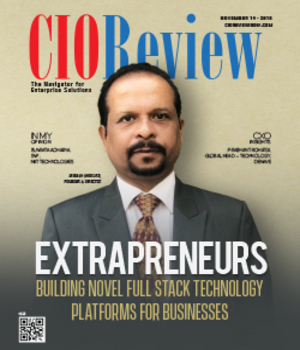
Autonomous Strategic Behavior
Suresh .V. Menon - Principal Consultant on Six Sigma and Strategic Management.
 Autonomous strategic behavior comes under entrepreneurial implications for strategy which is a part of strategic management process; it is a bottom-up process in which product champions pursue new ideas often through a political process, by means of which they develop and coordinate the commercialization of a new good or service until it achieves success in the market place. A product champion is an organizational member with an entrepreneurial vision of new good or service who seeks to create support for its commercialization. Product champions play critical roles in moving innovations forward. Indeed, in many corporations “champions are widely acknowledged as pivotal to innovations speed and success”. Champions are vital to sell the ideas to others in the organization so that innovations will be commercialized. Commonly product champions use their social capital to develop informal networks within the firm. As progress is made, these networks become more formal as a means of pushing an innovation to the point of successful commercialization. Internal innovations springing from autonomous strategic behavior frequently differ from the firms current strategy, taking it into new markets and perhaps new ways of creating value for the customers and other stakeholders.
Autonomous strategic behavior comes under entrepreneurial implications for strategy which is a part of strategic management process; it is a bottom-up process in which product champions pursue new ideas often through a political process, by means of which they develop and coordinate the commercialization of a new good or service until it achieves success in the market place. A product champion is an organizational member with an entrepreneurial vision of new good or service who seeks to create support for its commercialization. Product champions play critical roles in moving innovations forward. Indeed, in many corporations “champions are widely acknowledged as pivotal to innovations speed and success”. Champions are vital to sell the ideas to others in the organization so that innovations will be commercialized. Commonly product champions use their social capital to develop informal networks within the firm. As progress is made, these networks become more formal as a means of pushing an innovation to the point of successful commercialization. Internal innovations springing from autonomous strategic behavior frequently differ from the firms current strategy, taking it into new markets and perhaps new ways of creating value for the customers and other stakeholders.
Autonomous strategic behavior is based on a firm’s wellspring of knowledge and resources that are the source of the firm’s innovation. Thus a firm’s technological capabilities and competencies are the basis for new products and processes. As described in the strategic focus some companies does not appear to use autonomous strategic behavior to identify new technologies and products that can better service its customers. Challenging the concept of corporate level strategy through autonomous strategic behavior results when a product is championed within strategic and structural contexts. The strategic context is the process used to arrive at strategic decisions (often requiring political process to gain acceptance). The best firms keep changing their strategic context and strategies because of continuous changes in the current competition landscape. Thus some believe that the most competitive successful firms reinvent their industry or develop a competitively new one across time as they compete with current and future rivals.
To be effective an autonomous process for developing new products requires that new knowledge be continuously discussed throughout the firm. In particular the diffusion of tacit knowledge is important for development of more effective new products. Interestingly some of the processes important for the promotion autonomous new product development behavior may vary by the environment and the country in which a firm operates.
As an entrepreneur we must constantly innovate and try to bring new processes and products those who don’t innovate perish in the long run that’s the law of business ; so we should identify champions in our organization who can bring in the change and take the organization to the next level in today’s highly competitive world.
CIO Viewpoint
Why Foolproof Facial Recognition Is Key Against...
By Joseph Sudheer Thumma, Global CEO & MD, Magellanic Cloud
National Technology Day 2025: Powering Progress...
By CIOTech Outlook Team
Aligning IT Roadmap with Business Objectives: A...
By Subhash singh Punjabi, CISO & Head Enterprise Architecture, Deepak Fertilisers & Petrochemicals Corporation Ltd
CXO Insights
How Low-Code is Transforming the Future of Work...
By Deepak Pargaonkar, VP, Solution Engineering, Salesforce India
By Suresh .V. Menon - Principal Consultant on Six Sigma and Strategic Management.
Ecosystem innovation: an enabler for digital...







